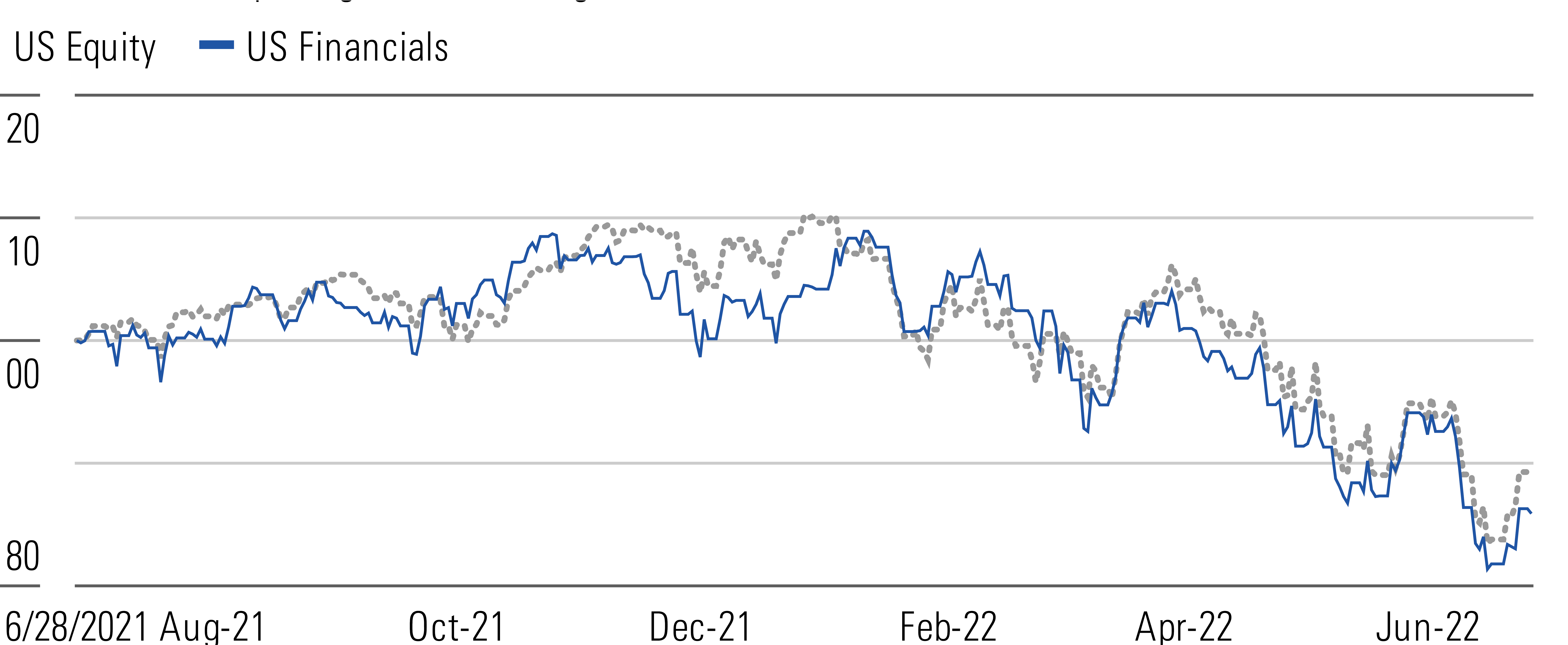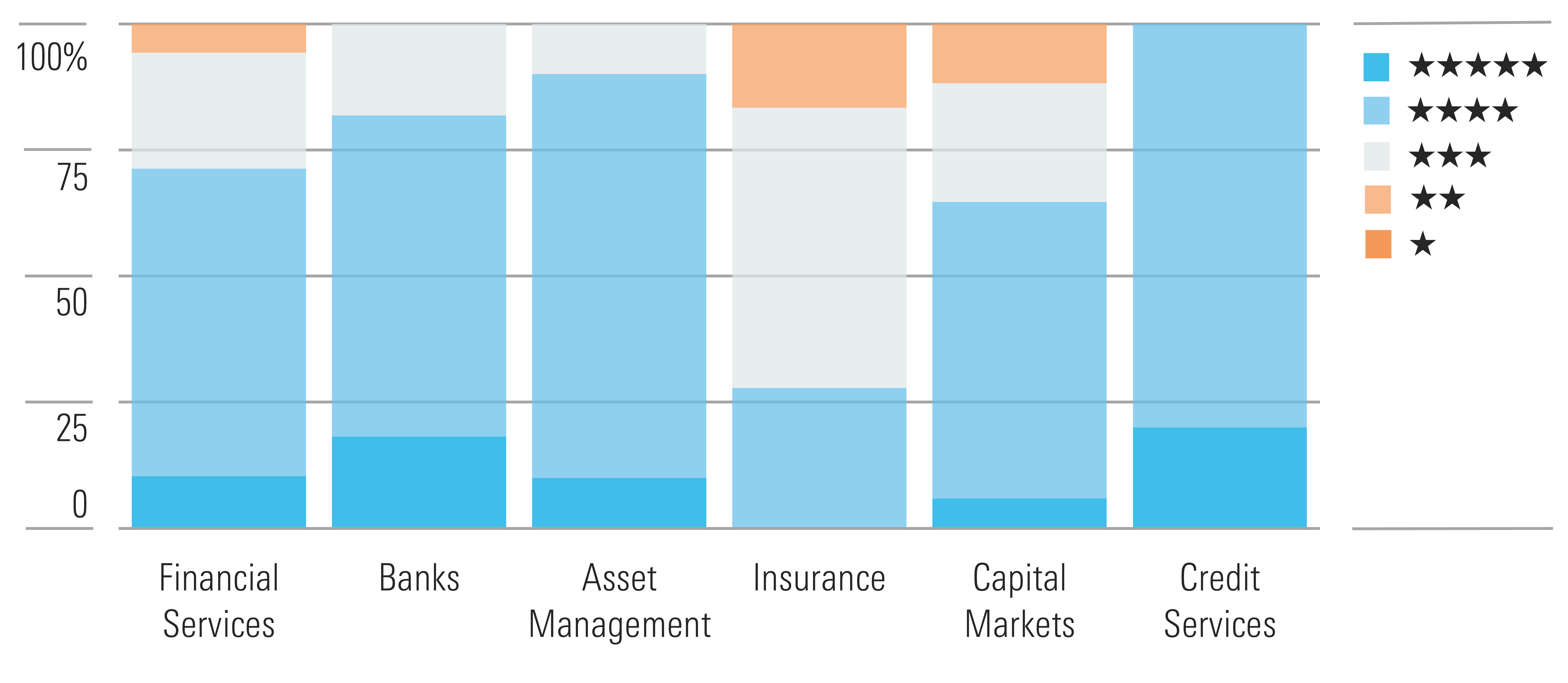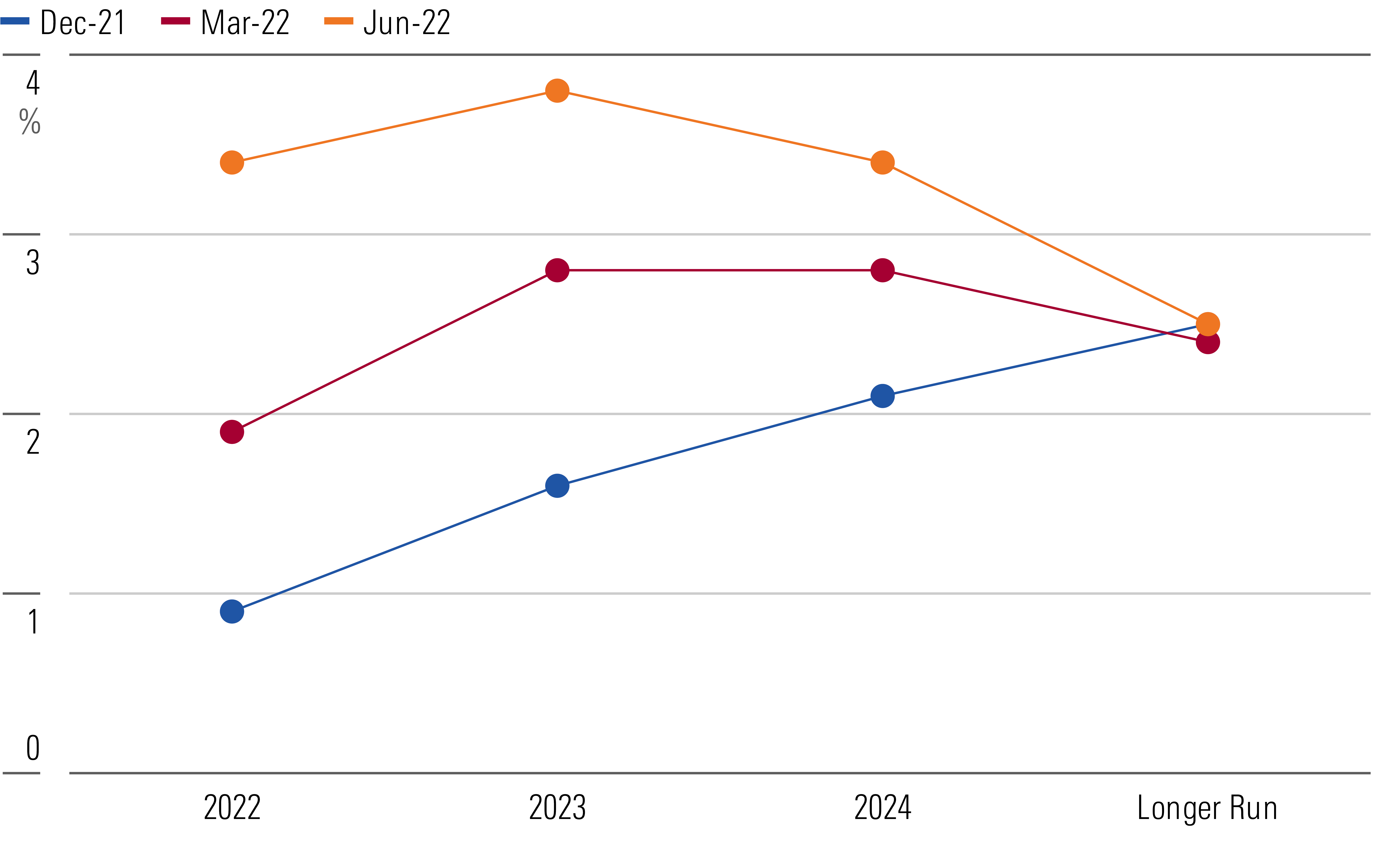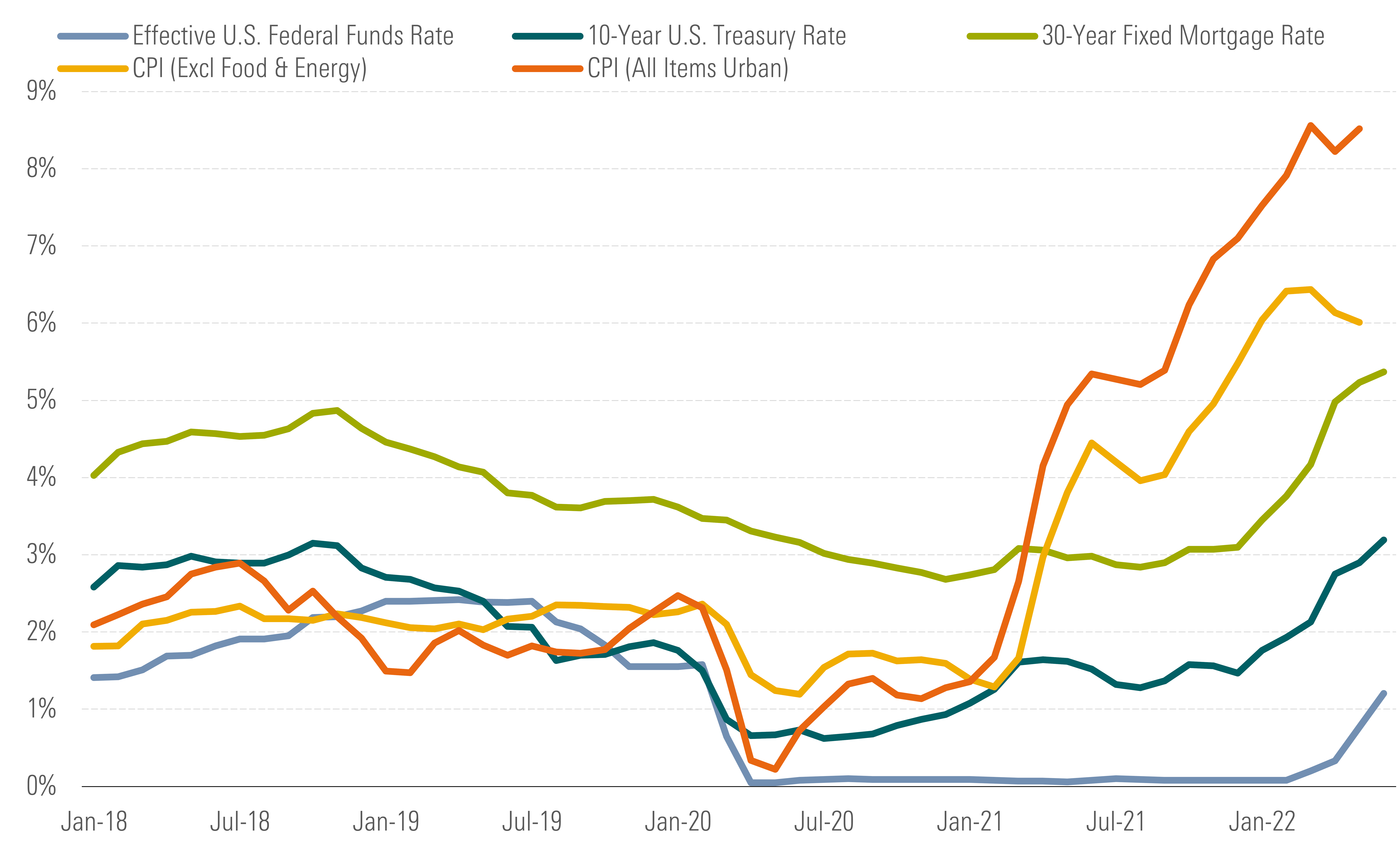Over 70% of Financial Stocks Undervalued
But charge-offs and declining fee revenue should offset any benefits of rising interest rates.
The Morningstar US Financial Services Index slightly underperformed the Morningstar US Market Index over the previous year, down 14.8% compared with the market’s decline of 14.2%, but outperformed in the previous quarter, down 7.2% compared with the market’s 8.7% decline. The median North American financial stock trades at a 21% discount to its fair value estimate compared with a 1% discount at the end of the first quarter of 2022 and a 2% premium at the end of the fourth quarter of 2021.
Market Is Pricing In Offsets to Higher Interest Rates

- Source: Federal Reserve, Morningstar Equity Research. Data as of June 27.
Over 70% of the North American financial stocks we cover are undervalued, trading in 5- or 4-star territory, with only a single-digit percentage with overvalued 2- and 1-star ratings.
Many Financials Attractively Priced

- Source: Federal Reserve, Morningstar Equity Research. Data as of June 27.
The Federal Open Market Committee has aggressively moved to rein in inflation. At its June meeting, it raised the federal-funds rate by 75 basis points, and the median projection is for the federal-funds rate to end the year between 3.25% and 3.5%. At the March 2022 FOMC meeting, the median federal-funds rate projection was 1.75% to 2% by the end of 2022, while at the December 2021 FOMC meeting, the median prediction was 0.75% to 1% by the end of 2022. The large 75-basis-point increase in the federal-funds rate was in response to recent inflation readings that remained a high 8.6% in May.
Federal-Funds Rate Expectations Have Significantly Increased

- Source: Federal Reserve, Morningstar Equity Research. Data as of June 27.
By increasing interest rates, the Federal Reserve is aiming to more balance demand and supply, which should reduce inflation. For example, the increase in the 30-year mortgage rate to recently over 5% from around 3% in 2021 should bring down the growth rate in housing prices to more normal levels.
While rising interest rates benefit the earnings of many financial companies, we see offsets in multiple industries. For banks, loan charge-offs should begin to increase, as the buffer in savings that consumers stowed away is spent. Banks also had abnormally high mortgage refinancing, underwriting, merger advisory, and trading revenue in 2020 and 2021, and these revenue streams should normalize lower over the next couple of years. With the U.S. bear market, asset and wealth managers with asset-based fees will report a drop in revenue until the markets recover.
Interest Rates Are Moving Higher to Bring Down Inflation

- Source: Federal Reserve, Morningstar Equity Research. Data as of June 27.
Top Picks
BlackRock BLK Star Rating: ★★★★ Economic Moat Rating: Wide Fair Value Estimate: $880 Fair Value Uncertainty: Medium
BlackRock has traded off harder than other asset managers this year, but there’s no fundamental reason for it to be trailing its peers performance-wise. The company is at its core a passive investor. Through its iShares exchange-traded fund platform and institutional index fund offerings, the wide-moat firm sources two thirds of its managed assets (and half its annual revenue) from passive products. In an environment where investors are seeking out passive products, as well as asset managers that have greater scale, established brands, solid long-term performance, and reasonable fees, BlackRock is well positioned.
Citigroup C Star Rating: ★★★★★ Economic Moat Rating: None Fair Value Estimate: $78 Fair Value Uncertainty: Medium
Citigroup is the most undervalued traditional U.S. bank under our coverage and is trading below tangible book value. The bank is busy shedding nonperforming segments, refocusing its operations on core competencies and geographies, and dealing with consent orders from regulators. Further, Citigroup is not one of the most rate-sensitive names, which we think contributes to its current lack of popularity. While the bank faces some headwinds, we think an eventual recovery in card balances will help drive revenue growth. We also think the completion of business segment sales and an eventual resolution of consent orders should all serve as future catalysts.
Goldman Sachs GS Star Rating: ★★★★ Economic Moat Rating: Narrow Fair Value Estimate: $430 Fair Value Uncertainty: High
Goldman Sachs and other investment banks will likely face headwinds over the next year or two, as investment banking and trading revenue normalize lower from elevated 2020 and 2021 levels. That said, we believe much of this is already factored into the stock’s price. The company is only modestly interest-rate-sensitive, so not much of its valuation depends on rates climbing and remaining high. In the medium term, the market may reward the company for initiatives that should improve the stability of its earnings, such as its push into consumer banking and changes in its investment-management business.

/s3.amazonaws.com/arc-authors/morningstar/75bbf764-3b6f-4f5a-8675-8f9488c74c04.jpg)
/cloudfront-us-east-1.images.arcpublishing.com/morningstar/WC6XJYN7KNGWJIOWVJWDVLDZPY.png)
/cloudfront-us-east-1.images.arcpublishing.com/morningstar/HHSXAQ5U2RBI5FNOQTRU44ENHM.jpg)
/cloudfront-us-east-1.images.arcpublishing.com/morningstar/737HCNGRFLOAN3I7RKGB7VPEKQ.png)
:quality(80)/s3.amazonaws.com/arc-authors/morningstar/75bbf764-3b6f-4f5a-8675-8f9488c74c04.jpg)